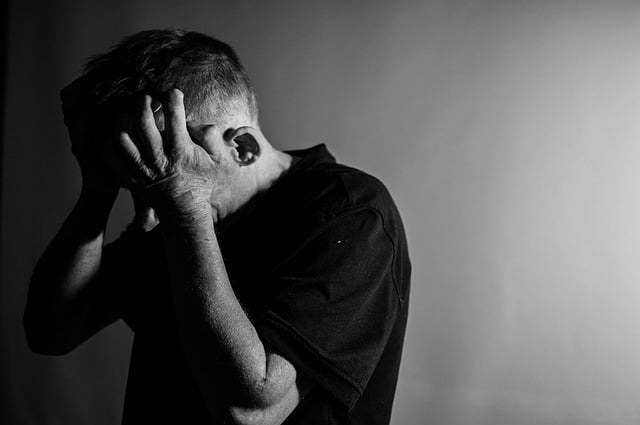What is bipolar disorder?
Bipolar Disorder is mental health illness where a person experiences fluctuating mood swings. These mood swings include: depression, hypomania, and/or manic episodes.

What are common depression symptoms:
- Low motivation
- Feelings of helplessness/hopelessness
- Isolative/withdrawn from others
- Eating and sleep patterns can fluctuate
- Challenges with concentration
- Irritability and/or anger easily
- Suicidal thoughts and/or self-harming behaviors (cutting being one of the most common forms of self-harm).
Depressive episodes can range from a few todays to months on end. If you are experiencing suicidal or aggressive thoughts towards others and need support go to your local emergency room or nearest mental health walk-in clinic for support.
What are common hypomania symptoms?
- Euphoria (on top of the world)
- Racing thoughts
- Pressured speech
- Irritability and/or agitation
- Inflated self-esteem/confidence
- Increase in goal-directed behaviors
- Decrease in sleep or need for sleep
- Restlessness
- Impulsive decision making
- Increase in high-risk behavior (unprotected sex and large/numerous credit card purchases are examples)
- Poor judgment
- Increase in goal-directed behavior(s)
- Suicidal thoughts
Hypomania is a level below a manic episode; however, hypomania can still significantly impact a person’s life negatively.
What are common manic symptoms?
- Inflated sense of self
- Euphoria
- Grandiosity
- Increase in energy
- Pressured speech
- Racing thoughts
- Limited sleep or no sleep
- Pressured speech
- Impulsive Decisions
- Poor Judgment
- Increase in goal directed behavior(s)
- Suicidal thoughts
What are the different types of bipolar diagnoses?
Bipolar I Disorder is classified by both a depressive episode and a manic episode. At times when a person experiences a bipolar manic episode they may need to be hospitalized to ensure their safety. A manic episode is typically differentiated from hypomania by the length of the symptoms presentation and/or if the person has a psychotic break during the increased mood.

Bipolar II Disorder is categorized by hypomania and depressive mood episodes. A person with Bipolar II Disorder symptoms does not meet the length of mania symptoms and thus experiences hypomania. Mood swings between hypomania and depression occur during Bipolar II Disorder.
As always, a person’s mood and mental health can be influenced by substance and alcohol use and abuse or other medical conditions.
A thorough assessment is needed to diagnosis a bipolar disorder. These should be carried out by a therapist or clinician with training and expertise in this area of mental health. We encourage readers to research therapists or clinicians near them to locate and vet providers before beginning.
At Revitalize Mental Health PLLC our local therapists specialize in working with bipolar disorders. Submit a form or call us to set up a 20-minute phone consultation to ensure we are the right fit for your needs. If you would like additional information on bipolar disorder, Anna Khandrueva’s blog has additional reading content around bipolar disorders and treatment.
Causes and Risk Factors
While the exact cause of bipolar disorder remains unknown, it is believed to arise from a mix of genetic, neurological, and environmental factors. Key influences include:
- Genetic Predisposition: Having close relatives with bipolar disorder increases the likelihood of developing the condition.
- Brain Function: Differences in brain activity and chemical signaling can contribute to symptoms.
- Life Events: Traumatic experiences, significant stress, or major life changes may act as triggers.
- Substance Use: Alcohol or drug use can amplify symptoms and complicate treatment.
Treatment Approaches
Managing bipolar disorder effectively requires a customized plan that addresses the specific challenges you face. Revitalize Mental Health offers an array of treatment methods to help you navigate this condition and improve your quality of life.
Medication Management
Medications are a key component of many treatment plans. Depending on your symptoms, mood stabilizers, antipsychotics, or antidepressants may be prescribed. We monitor your response to these medications closely, ensuring they are working well and adjusting them if necessary.

Psychotherapy Techniques
Therapy provides valuable tools to cope with bipolar disorder. The approaches we offer include:
- Cognitive Behavioral Therapy (CBT): Helps you recognize and change harmful thought patterns and behaviors.
- Interpersonal and Social Rhythm Therapy (IPSRT): Focuses on stabilizing daily routines and improving relationships.
- Family-Inclusive Therapy: Engages loved ones in the treatment process, promoting understanding and collective support.
Support Systems
A strong support network is essential for successfully managing bipolar disorder. At Revitalize Mental Health, we work with you and your loved ones to build a foundation of care and understanding. Community resources, support groups, and regular follow-ups are vital elements of this framework.
Lifestyle Strategies
Incorporating positive lifestyle habits can significantly improve your ability to manage bipolar disorder. These strategies can help:
- Maintain a Consistent Sleep Schedule: Regular sleep patterns can prevent mood swings.
- Practice Stress Management: Techniques such as mindfulness, meditation, and relaxation exercises help reduce stress.
- Focus on Nutrition and Physical Activity: Healthy eating and exercise support mental and physical health.
- Limit Substance Use: Avoiding alcohol and recreational drugs can reduce the risk of triggering episodes.
Why Choose Revitalize Mental Health?
At Revitalize Mental Health, we strive to create a supportive environment where your journey toward stability and well-being is our priority. Here’s what makes us unique:
- Specialized Expertise: Our team is experienced in treating bipolar disorder with proven, evidence-based techniques.
- Individualized Care Plans: We design treatment strategies specifically tailored to your needs and circumstances.
- Patient-Centered Approach: Your concerns and goals guide every aspect of our care.
- Convenient Access: Located in Kenosha, Wisconsin, we proudly serve the local community with compassionate care.
FAQs
Who is at risk of developing bipolar disorder?
Individuals with a family history of bipolar disorder or those exposed to significant stress or trauma may have an increased risk.
What are the common triggers for bipolar disorder?
Triggers can include stressful events, lack of sleep, hormonal changes, or substance use.
Where can I learn more about bipolar disorder?
In addition to seeking care at Revitalize Mental Health, you can explore educational resources offered by mental health organizations and trusted healthcare providers.
Speak with an Expert
Taking control of bipolar disorder is possible with the right support and resources. Contact Revitalize Mental Health in Kenosha, Wisconsin, today at 720.295.6703 to begin your path toward a more stable and fulfilling life.




